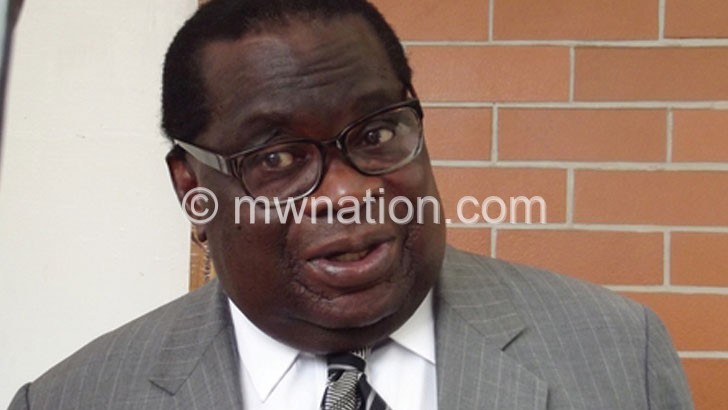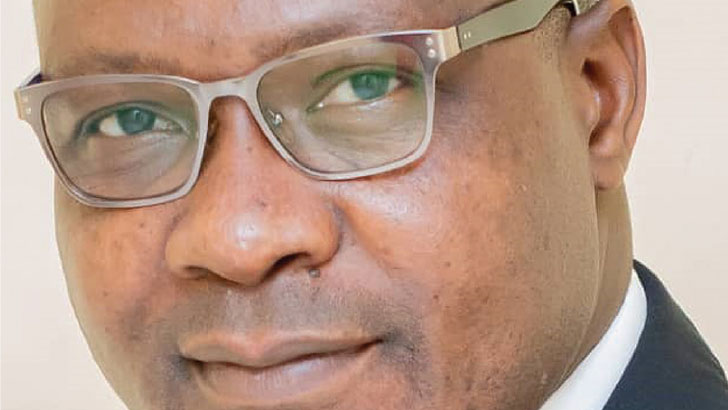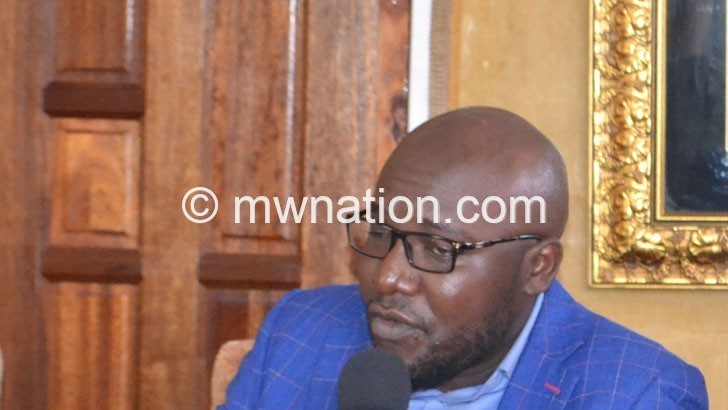#YouthDecide2019: Making young majority count
In September 2016, the country’s oldest Cabinet minister Goodall Gondwe, using a walking stick, paced feebly to the podium at the opulent Bingu International Convention Centre in Lilongwe to open a national conference on the impact of growth of young population on the future.
The Minister of Finance, Economic Planning and Development spoke slowly and paused frequently, pulling his black suit in place while searching for the right words to describe the long-term consequences of not investing in youthful Malawians, who constitute over 70 percent of the country’s population. In his words, there was no doubt that the number of the dominant age group—personified by uniformed students banished to the back seats of the terraced venue, continues to grow and this could become a ticking bomb if government does not adequately invest in providing quality education, relevant skills, decent jobs and healthcare for the youth boom. Interestingly, an optimistic view was clear in the certainty that the country can reap long-term benefits by strategically investing in turning the young population from a risk to an economic opportunity or productive citizens.

But Gondwe offered little hope when he launched the national blueprint called Harnessing the Population Dividend. The 80-year-old looked back, saying the country has been talking about empowering the youth since the 1960s when he was an energic boy walking long distances in thick jungles of Mzimba to access primary education. The economist, who went to Dedza Secondary School along with President Peter Mutharika shortly after Malawi became independent, posed a rhetorical question in a call for some soul-searching.
“We have been talking about this for decades, but what has changed so far?” he asked “It is my hope that you will explore tangible solutions to turn the song of youth empowerment into something that will change lives of youthful Malawians.”
If the long-serving finance minister put his rhetorical question to Peter Banda, a 21-year-old job seeker we met at Blantyre Labour Office recently, the answer would have been somewhat bleak.
“We have been dancing to the song of youth empowerment for years without number, but nothing much is changing in our lives. We are a forsaken majority as everyone seems to think we are future leaders. But what does the future hold for us if nothing worthwhile comes our way right now?”
For Peter Banda, the dusty space outside the labour office at Ginnery Corner has become what he calls a “frustration corners”. Unemployed young Malawians in Karonga prefer calling it a ‘jobless corner’. There are several frustration corner which are sometimes called labour offices although these are places where those who have no work meet to share their agonies, nurse their heartbreaks, re-examine their joblessness, re-strategise and wait for the next opportunity if any.
However, Banda says the opportunities have been few and far apart.
“I come here early in the morning and leave late in the evening, but sometimes I go home empty-handed because there aren’t many job offers for the increasing number of jobless Malawians. When we get jobs, employers offer low pay because they know if you refuse what they are offering, someone will take it happy.”
Such is the extent of youth unemployment that the government spokesperson Henry Mussa, the former Minister of Labour, Youth, Sports and Manpower Development is on record that nearly two million Malawians are loafing with certificates in their pockets.
The International Labour Organisation (ILO) estimates that nearly a quarter of the youthful population of employable age have no employment.
In 2015, President Mutharika launched community technical colleges in fulfillment of his electoral promise to provide vocational and entrepreneurial skills to young Malawians excluded from higher education.
Speaking at Ngala Community Technical College in Karonga, Mutharika said it is a pity that since independence, the country failed to invest adequately in ensuring every young Malawian has relevant skills.
In random interviews, most young people we met at Haile Selassie in Blantyre said everyone vying for public office in May 21 2019 elections need to come clear how they intend to reduce the country’s massive youth unemployment.
When asked about the top-three burning issues for the youth ahead of the elections in which Malawians over 18 will elect the President, members of Parliament and councillors, eight in 10 youthful pedestrians spoke of job creation, quality education and business loans for the youth.
They mostly praised government for the community technical college initiative, which has reached 15 districts, although it falls short of the President’s promise to ensure all 28 districts and 193 have a college each.
All of them spoke against politicians’ tendency of conscripting the youth to dance, drape themselves in party colours and wreak havoc on people with different political conviction.
They reckon time is now for the youth to participate in entrenching democracy instead of being used like political toys.
According to Malawi Electoral Commissioner (MEC), at least 54 percent of those registered to vote next year are aged 18 to 35.
This means the youth have the sway to decide the outcome of the forthcoming polls, says Youth and Society (YAS) director Charles Kajoloweka.
“The future of Malawi for next five years and beyond will be determined by young people because they do not only constitute the majority of the population but also over half of the electorate,” he says.
YAS is among five non-governmental organisations to ensure the youth are not left behind in the race to the polls. Other players include Young Politicians Union, Network for Youth Development, Youth Network and Counselling and National Youth Council.
The consortium, with funding from Open Society Institute of Southern Africa (Osisa) and Danish Church Aid to the tune of $65 000, are working with 35 youth organisations in all 28 districts to set the agenda.
The Youth Decide campaign includes encounters with the youth to compile a manifesto which articulate their aspirations and aspirations, rally them to contest for positions up for grabs in the tripartite elections and collectively refuse to be used agents of political violence.
In so doing, the change agents envisage the youth sending a strong message to both policymakers and political parties that the dominant age group wants to be at table when issues about them are being discussed in before and after May 21 2019.
“Nothing for us without us,” says Kajoloweka. “The Youth Decide Campaign is mobilising the demographic power and energy of the youth to influence policy-making, development and governance in Malawi. The Youth Manifesto is the agenda for the youth in which we want them to state what we want the next government to do for us and what type of governance we want to see in the next five years. We want to use our numerical advantage to influence peaceful elections in 2019 and increase the representation of young Malawians in decision-making body.”
The youth campai-gn will run parallel with the 50:50 initiative to increase the number of women in Parliament, local councils and all spheres of public life.
The National Youth Policy, which expired in August, defines the youth as persons aged between 10 and 35. However, so low are their numbers in politics that the likes of Vice-President Saulos Chilima and United Democratic Front president Atupele Muluzi are mistakenly marketed as faces of the youth although they are overaged.
The youth organisations want to close the gap and demystify that misconception that the youth are only old enough to vote, but not to be on the ballot.
Apart from ensuring their aspirations form the core of political parties’ manifestos, YAS and its partners are rallying the youth to run for political office.
“As part of the Youth Decide campaign, we have identified about 180 youthful candidates vying for parliamentary seats and councillorship, but we are optimistic to reach 300,” states Kajoloweka.
By encouraging his peers to contest for elected positions in May, the 32-year-old youth activist envisions creating a cadre of young faces to vie even for the presidency, which long-serving Gondwe slyly said “was not meant for babies”.
The octogenarian minister may have said his infamous quotes in defence of the 79-year-old President whom former first lady Callista Mutharika said was too old to seek re-election at the expense of his youthful deputy–Chilima.
The pro-youth sentiments form the crux of Chilima’s UTM campaign in which he is marketed as the youthful face, with both politicians and clergymen taking turns to warn the electorate against leaving the country’s destiny in the hands of the old guard.
Both Chilima and his boss-turned-nemesis in the governing Democratic Progressive Party (DPP) have made youth empowerment part of their major talking points in the run-up to 2019.
But they need not look far for the agenda for youth, says the YAS leader.
States Kajoloweka: “Every electoral year, parties set their manifestos, but we doubt if their promises and government-led efforts have benefitted the youth. This time, we don’t want parties to set the agenda for youth development from their perspectives, but to create space for our manifesto in their manifesto.
Instead of talking about general issues, we expect the parties vying for various positions to adopt the aspirations of the youth for youth development. After elections, many organisations go to sleep, but we will not doze off. The Youth manifesto will be the basis for holding government accountable in terms of youth development.”
Just like that, the youth activists are talking about the push for youth development beyond 2019.
Back at the ‘frustration corner’,Banda wishes politicians stopped using the youth and youth empowerment as bait to amass votes.
He laments: “It never ceases amazing me how politicians only speak of the importance of the youth when they need our votes. After the polling day, they don’t care about us.
“They want us to believe we are leaders of tomorrow, when they are actually saying we are too inexperienced to get jobs and presidential appointments, including appointments to Cabinet and boards of government agencies where everyone is worried about low representation of women, not exclusion of the youth.” na





